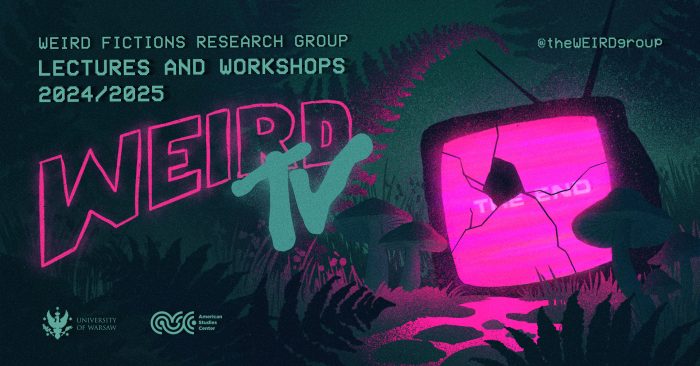Weird Fiction Research Group kindly invites you to the fourth Weird TV meeting in spring semester. We’re continuing the subject of the game/TV relationship with Dominik Kędzierawski’s lecture about (among others) Until Dawn and Bandersnatch – “Becoming the Horror – Interactive Movies as the Perfect Horror Medium”!
Tuesday, April 15, 2025
4:45 pm
*3 OZN*

Where?
Dobra 55, room: 2.118
(the building features some mobility accommodations: ramp and lift)
What?
Who?
Dominik Kędzierawski: sophomore at ASC’s MA programme and BA graduate. Current academic interests revolve around game studies and moral philosophy, with MA research focusing on procedural rhetoric of American colonialism in videogames.




